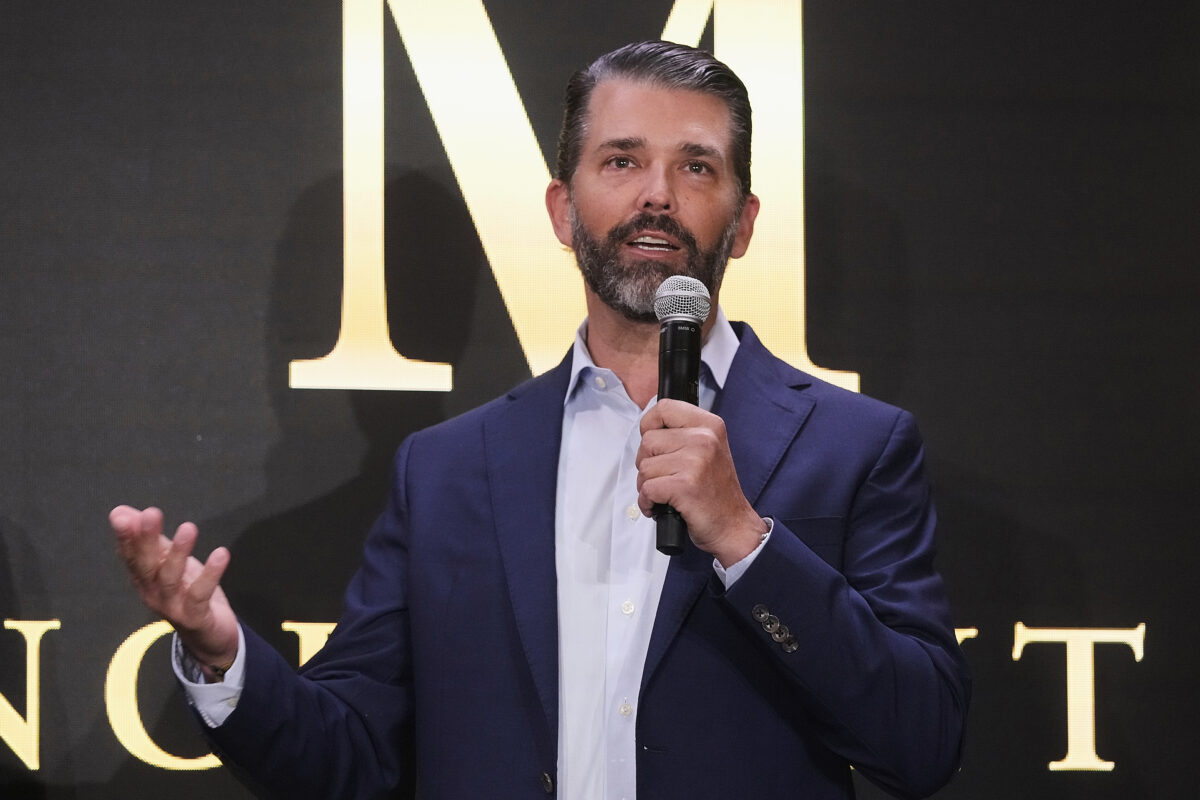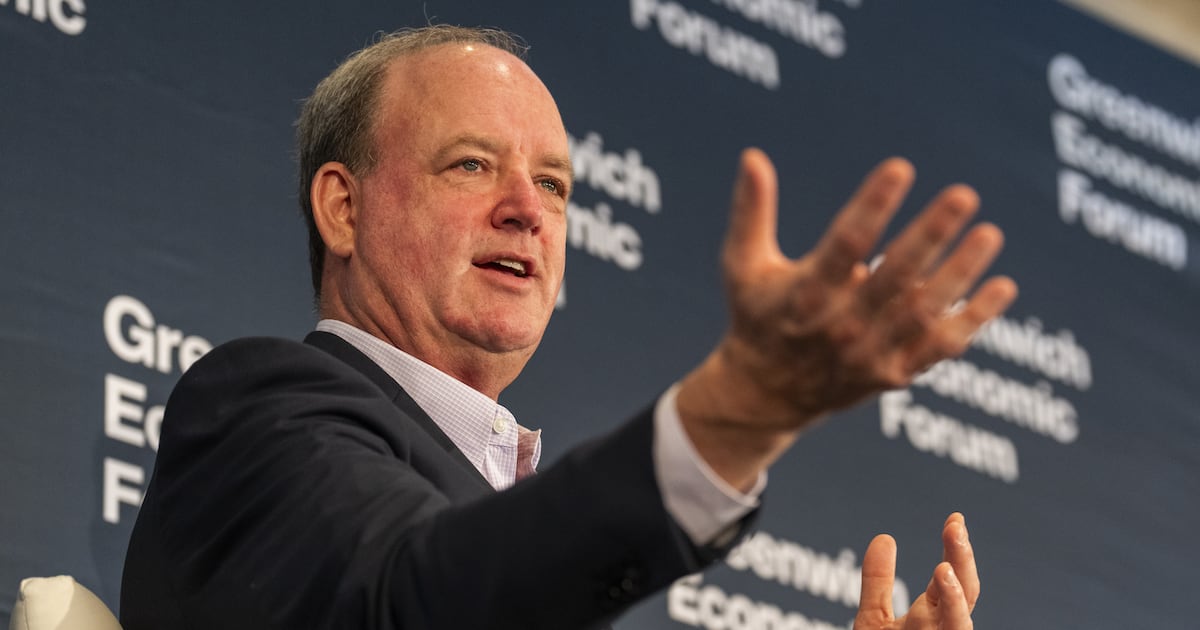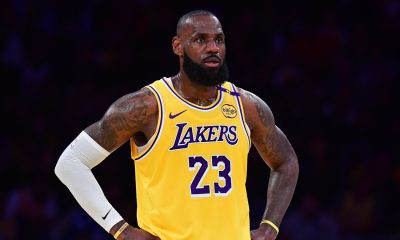Technology
How Strava Is Using AI Tools to Crack Down on Cheaters
Strava drama has become the name of the game in the fitness tracking world. I suppose when your favorite fitness app also includes a social media element, a little tension is inevitable. Add competitive leaderboards into the mix, and you’ve got a recipe for intrigue that would make reality TV producers salivate. If you’re tuned […]

Strava drama has become the name of the game in the fitness tracking world. I suppose when your favorite fitness app also includes a social media element, a little tension is inevitable. Add competitive leaderboards into the mix, and you’ve got a recipe for intrigue that would make reality TV producers salivate.
If you’re tuned into leaderboard controversies, you’ll know that runners and cyclists are deeply divided on whether the platform is doing too much—or not nearly enough—to combat fake entries. If you ask me, when some users are deploying electric unicycles to dominate local climbing segments, that’s evidence enough something needs to be done.
And now Strava is doing something: The company has announced the launch of AI-enabled Leaderboard Integrity, a new tool intended to separate legitimate athletes from creative cheaters.
How Strava is using AI to root out cheaters
For the uninitiated, the reason people cheat is usually to claim King of the Mountain (KOM) and Queen of the Mountain (QOM) titles—coveted crowns that represent the fastest times on specific segments. Peruse the Strava subreddit for a few minutes, and you’ll be sure to see grievances about leaderboard cheaters.
Strava’s latest update is designed to identify and flag “irregular, improbable, or impossible” performance recorded on the platform. The system acts as a digital referee, capable of detecting when an impossibly fast e-bike ride has been mislabeled as a regular cycling effort, then politely prompting users to correct their entries.
The technology goes beyond simple speed checks. Strava revealed in February that its machine learning system analyzes activities using 57 different factors, including speed patterns, elevation gains, and acceleration data, to determine when something doesn’t add up. The result of this crackdown? Strava has already removed 4.45 million activities from its platform.
The deleted activities generally fall into two main categories: entries uploaded with the wrong sport type (like labeling an e-bike ride as regular cycling) and activities recorded while in a vehicle. To be fair, the latter category likely includes everything from users forgetting to stop their tracking while driving home, to more deliberate attempts to game the system by recording car or train journeys as part of legitimate running segments.
How Strava users are reacting
The fitness community’s reaction to Strava’s cheater detection has been characteristically split. Serious athletes and segment hunters generally applaud the stricter measures—after all, leaderboard integrity is what makes the app’s competitive element at all meaningful. If the numbers are fraud, what’s the point?
What do you think so far?
However, some users worry about false positives—that is, legitimate exceptional performances getting flagged by overzealous algorithms. And the AI is overzealous: Some users have commented that their personal records are being deleted without any sort of prompt or ability to dispute the AI’s findings. If you’re a serious athlete, seeing your genuinely impressive times being questioned by an automated system that might not account for peak human performance is naturally going to rankle.
Outside of leaderboard integrity, Strava’s AI initiatives are generally overzealous and inaccurate. I’m not alone in noticing how absurd its new route generation can get. I’m talking routes with concentric loops, cutting through buildings, major roads instead of residential paths, and other issues that will make no sense to a real human moving through the world. Given the immense heat map data that we’ve all effectively donated to Strava, to be given such shoddy AI-generated routes is fairly bonkers, and it’s hardly surprising that its cheat-detecting tools would also be less than precise.
The bottom line
Controversy aside, Strava’s competitive features should be more about personal motivation than serious competition. If cheater detection is ruining your experience, I recommend some perspective. Try not to let it spoil what should be a fun, social fitness experience—especially given the AI tools don’t (yet) seem accurate enough to reflect reality.
But with 4.45 million activities already in the digital trash bin, Strava’s message is clear: The days of easily gaming the leaderboards are over. Of course, as fitness tracking technology continues to evolve, so too will the methods people use to fool the system. Hopefully Strava stays one step ahead of creative rule-benders.
Technology
BRITE announces leader’s departure | News, Sports, Jobs
WARREN — The CEO of a nonprofit energy-tech incubator based in downtown Warren is stepping down as part of a planned leadership transition, BRITE Energy Innovators announced last week. Rick Stockburger, who has served as BRITE’s first CEO for nearly eight years, will be assuming “a prominent national role in the energy sector,” the incubator […]

WARREN — The CEO of a nonprofit energy-tech incubator based in downtown Warren is stepping down as part of a planned leadership transition, BRITE Energy Innovators announced last week.
Rick Stockburger, who has served as BRITE’s first CEO for nearly eight years, will be assuming “a prominent national role in the energy sector,” the incubator stated in a news release.
BRITE’s current managing director, Jing Lyon, will serve as interim CEO as its board conducts a national search for a permanent leader.
“Rick has been at the heart of BRITE since its early days,” said Michael Stacey, BRITE board chair and managing director at KPMG US. “His leadership has guided the organization’s momentum, and we are grateful for his commitment to our mission.”
Under Stockburger’s leadership, BRITE has helped its portfolio companies raise more than $200 million in capital in 2024. Since its founding in 2010, BRITE has supported more than 650 energy-tech startups, catalyzing more than 2,100 jobs and raising more than half a billion dollars in third-party investment while working with BRITE.
“Leading BRITE has been such a privilege,” Stockburger said. “Together with our incredible team and trailblazing startups, we’ve built a place where proud Midwestern grit meets innovation.
Lyon is a Case Western Reserve-trained chemical engineer and early team member at battery technology startup Stratum Energy. She joined BRITE in 2022. Under her leadership, BRITE’s startup programs have tripled in scale, including the launch and rapid growth of its flagship CXO Program, which embeds fractional executives into startup teams.
Stockburger will remain at BRITE in an advisory capacity through June 30, with Lyon assuming leadership July 1.
Technology
The Trump family’s next venture, a mobile phone company | News, Sports, Jobs
NEW YORK — The Trump family is licensing its name to a new mobile phone service, the latest in a string of ventures announced while Donald Trump is in the White House despite ethical concerns that the U.S. president could mold public policy for personal gain. Eric Trump, the president’s son running The Trump Organization […]

NEW YORK — The Trump family is licensing its name to a new mobile phone service, the latest in a string of ventures announced while Donald Trump is in the White House despite ethical concerns that the U.S. president could mold public policy for personal gain.
Eric Trump, the president’s son running The Trump Organization in his absence, announced a new venture Monday called Trump Mobile. The plan is to sell phones that will be built in the U.S., and the phone service will maintain a call center in the country as well.
The announcement of the new mobile phone and service, called T1 Mobile, follows several real estate deals for towers and resorts in the Middle East, including a golf development in Qatar announced in April. A $1.5 billion partnership to build golf courses, hotels and real estate projects in Vietnam was approved last month, though the deal was in the works before Trump was elected.
Even oversight of such a company, with the Trump name attached, raises ethical concerns.
Trump has already used the federal government to reward his allies and punish his enemies. The Federal Communications Commission, the primary regulatory body overseeing mobile phone companies, has already launched investigations of media outlets Trump dislikes and, in some cases, is personally suing.
Eric Trump said Monday that consumers deserve a phone that aligns with their values.
“Hard-working Americans deserve a wireless service that’s affordable, reflects their values, and delivers reliable quality they can count on,” he said in a statement.
The company would also enter a highly competitive market that includes companies that have been directly attacked by Donald Trump.
The president criticized Apple last month because it planned to make most of its U.S. iPhones in India, and threatened to slap a 25% tariff on the devices unless the tech giant starts building the phones domestically.
The Trump phone deal comes as a mandatory financial disclosure report just filed with the government shows the president has moved fast in the last year to profit off his celebrity, taking in $3 million in revenue from selling “Save America” coffee table books, $2.8 million from Trump watches and $2.5 million from Trump branded sneakers and fragrances.
The Trump Organization on Monday said the new, gold-colored phone available for $499 in August, called the T1 Phone, won’t be designed or made by Trump Mobile, but by another company.
The Trump Organization did not respond immediately to a request for more details.
In the first term, Trump was blasted by conservative and liberal government ethics experts alike for opening his Washington hotel to lobbyists and diplomats and violating his company’s pledge to avoid even the appearance of a conflict between his private profit and the public interest.
The company is feeling more emboldened now in the second term.
The mobile service is partnering with existing cellular carriers with access to a 5G network, raising questions of how they will be treated by federal regulators now that they have partnered with his company. The Trump Organization said those companies are America’s three biggest mobile network providers, an apparent reference to Verizon, AT&T and T-Mobile, the latter with a trademarked name that is very similar to Trump’s T1 Mobile.
The name given to the monthly service offer, The 47 Plan, and the monthly fee of $47.45 make reference to Trump’s two terms, the 45th and the 47th. The service will include unlimited calls, texts and data and free roadside assistance and telehealth services.
A mock-up of the planned phone on the company’s website shows Trump’s slogan “Make America Great” on the front and an etched American flag on the back.
By sticking to licensing, the Trump family is limiting its risk. Still, the new service faces big challenges if it hopes to sell beyond the president’s loyal MAGA fans.
The Trump company tried to tap into support among the middle class in the first term with two mid-priced hotel chains. Called American Idea and Scion, and unveiled like the phone service Monday under a giant U.S. flag in the Trump Tower atrium, they flopped.
Despite taking in millions of dollars each year in various licensing deals and a string of new ventures, the Trump brand has taken a series of hits to its brand over the years.
During his first term, the Trump name was stripped off residential buildings and hotels in Toronto, Panama and Manhattan.
The Trump International Hotel in Washington, since sold, lost money even though the family opened its doors to businesses and governments trying to shape U.S. policy.
The average condo in 11 Trump-branded residential towers around the country underperformed the broader market during and immediately after Trump’s first term. More recently, the value of Trump condos in New York City fell in the past two years as similar properties rise in value, according to brokerage CityRealty.
The Trump Organization has had more success with some ventures launched in the first few months of his second term.
Trump Media & Technology Group, a Florida company that operates the Truth Social media platform, filed plans with security regulators Monday to launch an exchange-traded fund tied to the prices of two popular cryptocurrencies.
The ETF is part of the Trump family’s rapidly growing crypto empire, which includes a new stablecoin and launching and promoting memecoins.
The president’s most recent financial disclosure report reveals he made more than $57 million last year from World Liberty Financial, a crypto company he and his sons helped launch in September.
___
AP Business Writer Alan Suderman contributed to this story.
Technology
Mibro Unveils Three New Smartwatches, Highlighting Sports-Tech Innovation and Brand Transformation
SHENZHEN, China, June 16, 2025 /PRNewswire/ — On June 16, Mibro, a brand of ZhenShi Information Technology (Shenzhen) Co., Ltd, proudly announces the launch of three new smartwatches: GS Explorer S, GS Pro2, and GS Active2, marking a milestone in its brand evolution. With a renewed focus on integrating sports and technology, the release underscores the […]
SHENZHEN, China, June 16, 2025 /PRNewswire/ — On June 16, Mibro, a brand of ZhenShi Information Technology (Shenzhen) Co., Ltd, proudly announces the launch of three new smartwatches: GS Explorer S, GS Pro2, and GS Active2, marking a milestone in its brand evolution. With a renewed focus on integrating sports and technology, the release underscores the brand’s commitment to supporting athletes across various disciplines.
Each smartwatch in the lineup is designed to serve a unique athletic purpose. The Mibro GS Explorer S is engineered for extreme outdoor adventurers, ensuring durability in demanding environments. It supports freediving, sailing, surfing, mountaineering, and rock climbing, featuring military-grade durability, Bluetooth calling, a 100-meter water resistance rating and advanced health monitoring. A premium version boasts an aerospace-grade titanium alloy body. At MWC 2025, the GS Explorer S won the “Best in Show” award from Wareable, highlighting its exceptional performance and design.
The Mibro GS Pro2 targets triathlon participants, particularly those who engage in the sport regularly through amateur events. As the flagship model of the lineup, it combines rugged construction with a lightweight build. The smartwatch supports multi-sport tracking for swimming, cycling, and running, and includes trajectory navigation for enhanced route planning and performance analysis.
The running community will find its match in the lightweight design of the Mibro GS Active2, which weighs just 39.9 grams. Tailored specifically for runners, the smartwatch incorporates six core technologies, reshaping training experiences through various running modes and personalized training plans.
A notable innovation across the new GS Series lineup is the Padel mode. Using real athlete performance data and guidance from China’s top Padel professionals, the feature provides sport-specific metrics and professional-grade feedback tailored to players of all skill levels.
All three watches are powered by Galaxy OS 2.0, delivering a smoother and more intuitive user interface. The system allows seamless health and fitness data integration with third-party platforms, including Google Fit for Android users, Apple Health for iOS, and Strava for GPS-enabled devices, ensuring a connected and holistic user experience.
This launch marks Mibro’s evolution from a wearable brand to a sports tech partner. Backed by 300+ R&D engineers, 200+ patents, and an in-house sports science lab, the company is poised to drive the next generation of smart athletic performance tools.
Technology
Mibro Unveils Three New Smartwatches, Highlighting Sports-Tech Innovation and Brand Transformation
SHENZHEN, China, June 16, 2025 /PRNewswire/ — On June 16, Mibro, a brand of ZhenShi Information Technology (Shenzhen) Co., Ltd, proudly announces the launch of three new smartwatches: GS Explorer S, GS Pro2, and GS Active2, marking a milestone in its brand evolution. With a renewed focus on integrating sports and technology, the release underscores the […]

SHENZHEN, China, June 16, 2025 /PRNewswire/ — On June 16, Mibro, a brand of ZhenShi Information Technology (Shenzhen) Co., Ltd, proudly announces the launch of three new smartwatches: GS Explorer S, GS Pro2, and GS Active2, marking a milestone in its brand evolution. With a renewed focus on integrating sports and technology, the release underscores the brand’s commitment to supporting athletes across various disciplines.
Mibro New GS Series jwplayer(‘myplayer1’).setup({file: ‘https://mma.prnasia.com/media2/2711236/GS_Series_HD_EN.mp4’, image: ‘https://mma.prnasia.com/media2/2711236/GS_Series_HD_EN.mp4?p=medium’, autostart:’false’, stretching : ‘uniform’, width: ‘512’, height: ‘288’});
Each smartwatch in the lineup is designed to serve a unique athletic purpose. The Mibro GS Explorer S is engineered for extreme outdoor adventurers, ensuring durability in demanding environments. It supports freediving, sailing, surfing, mountaineering, and rock climbing, featuring military-grade durability, Bluetooth calling, a 100-meter water resistance rating and advanced health monitoring. A premium version boasts an aerospace-grade titanium alloy body. At MWC 2025, the GS Explorer S won the “Best in Show” award from Wareable, highlighting its exceptional performance and design.
The Mibro GS Pro2 targets triathlon participants, particularly those who engage in the sport regularly through amateur events. As the flagship model of the lineup, it combines rugged construction with a lightweight build. The smartwatch supports multi-sport tracking for swimming, cycling, and running, and includes trajectory navigation for enhanced route planning and performance analysis.
The running community will find its match in the lightweight design of the Mibro GS Active2, which weighs just 39.9 grams. Tailored specifically for runners, the smartwatch incorporates six core technologies, reshaping training experiences through various running modes and personalized training plans.
A notable innovation across the new GS Series lineup is the Padel mode. Using real athlete performance data and guidance from China’s top Padel professionals, the feature provides sport-specific metrics and professional-grade feedback tailored to players of all skill levels.
All three watches are powered by Galaxy OS 2.0, delivering a smoother and more intuitive user interface. The system allows seamless health and fitness data integration with third-party platforms, including Google Fit for Android users, Apple Health for iOS, and Strava for GPS-enabled devices, ensuring a connected and holistic user experience.
This launch marks Mibro’s evolution from a wearable brand to a sports tech partner. Backed by 300+ R&D engineers, 200+ patents, and an in-house sports science lab, the company is poised to drive the next generation of smart athletic performance tools.
For more information, please visit https://www.mibrofit.com/, or follow them on Facebook and Instagram.
For business inquiries, please contact business@mibrofit.com.
| This article was produced by Cision PR Newswire, our trusted news partner. The views expressed and the content presented here are solely those of the author and may not fully reflect the opinions of Thailand Business News. |
Read the original article : Mibro Unveils Three New Smartwatches, Highlighting Sports-Tech Innovation and Brand Transformation
Technology
New Peloton fitness equipment teased by CEO – could even arrive this year
When you buy through links on our articles, Future and its syndication partners may earn a commission. Credit: Peloton Quick Summary Peloton’s CEO has teased that new hardware could be on the cards. No details were specified, but it looks like we will learn more about the new equipment roadmap in a few months. Peloton […]

When you buy through links on our articles, Future and its syndication partners may earn a commission.

Credit: Peloton
Quick Summary
Peloton’s CEO has teased that new hardware could be on the cards.
No details were specified, but it looks like we will learn more about the new equipment roadmap in a few months.
Peloton has released a number of new fitness features onto its equipment over the last couple of years, but it’s been a while since we have seen any new hardware.
The latest to come from the company was the Peloton Row, which launched at the end of 2022, but that has yet to be made available in the UK. So for those this side of the pond, the Peloton Guide is the most recent.
Thankfully though, after teasing what could be a deeper integration with Garmin Connect on the software side of things, Peloton’s CEO, Peter Stern, has now mentioned hardware as part of a possible future roadmap.
During Peloton’s Q3 2025 earnings call (via Pelobuddy), Stern responded to a question from an analyst saying: “We’ve got to start innovating on our hardware. We’ve been doing a great job on software, but it’s all got to come together as a mix of hardware and software and incredible content that we’ve got, so that our members derive even more value from us and they’ve got reasons to buy more from Peloton.”
No specifics were detailed, but the report on Pelobuddy pulls out the “reasons to buy more” quote. It claims this suggests Peloton will offer new products or enhancements to its existing equipment as part of its near-future strategy.
When might we learn more about new Peloton hardware?
As for when we might learn about what the firm has in the pipeline, Stern suggested during the Bank of America Global Tech Conference at the beginning of June that the roadmap would be shared later this year.
“[I’m] not here today to announce the future product roadmap of the company. I think we’ll do that a few weeks after the fourth quarter earnings because I think I’d like to separate it in time,” he said during the conference.
For now, there are no official details of what Peloton equipment we might see launch this or early next year, but it certainly seems like it has something up its sleeve. We just hope we get it in the UK… unlike the Peloton Row.
Technology
Proliferation of sports funds highlights growing need for differentiation
In April, renowned dealmaker Michael Klein told the crowd at SBJ’s World Congress of Sports that it was “a dramatic overstatement” to say institutional capital had flooded into sports, noting the industry still is dominated by individual investors while in other mature sectors “institutional dollars are roughly equal to 80% to 90% of the asset […]


“Unless you have a very specific lens on what you’re investing in and the differentiators for you as a fund, then it’s actually a challenging [fundraising] environment.”
— Jason Wright, Ariel Investments, Project Level
-

 College Sports2 weeks ago
College Sports2 weeks agoIU basketball recruiting
-

 Health2 weeks ago
Health2 weeks agoOregon track star wages legal battle against trans athlete policy after medal ceremony protest
-

 Professional Sports2 weeks ago
Professional Sports2 weeks ago'I asked Anderson privately'… UFC legend retells secret sparring session between Jon Jones …
-

 Professional Sports2 weeks ago
Professional Sports2 weeks agoUFC 316 star storms out of Media Day when asked about bitter feud with Rampage Jackson
-

 Rec Sports3 weeks ago
Rec Sports3 weeks agoScott Barker named to lead CCS basketball • SSentinel.com
-

 High School Sports2 weeks ago
High School Sports2 weeks agoThe Arizona Daily Star's top high school athletes, coaches and moments of the 2024
-

 Rec Sports3 weeks ago
Rec Sports3 weeks agoJ.W. Craft: Investing in Community Through Sports
-

 Motorsports3 weeks ago
Motorsports3 weeks agoNASCAR Penalty Report: Charlotte Motor Speedway (May 2025)
-

 Motorsports3 weeks ago
Motorsports3 weeks agoRockingham Speedway listed for sale after NASCAR return
-

 Rec Sports2 weeks ago
Rec Sports2 weeks ago2x NBA All-Star Reacts to Viral LeBron James Statement
































